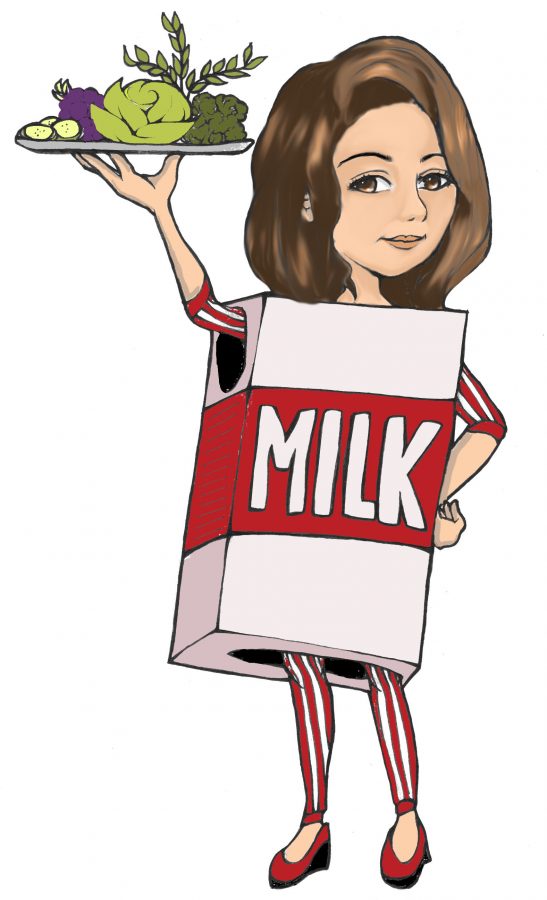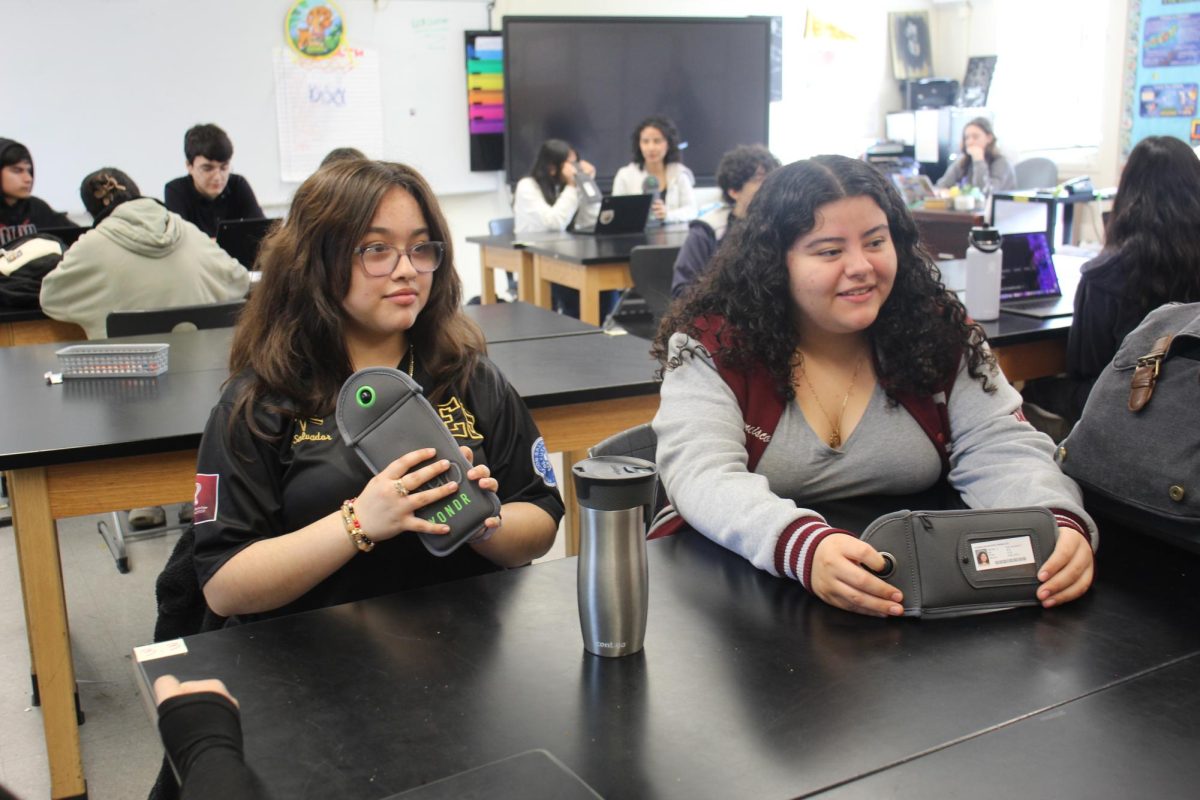Vegetarianism is more humane than meat diet
May 19, 2016
Just imagining a cow standing in line awaiting its turn to be slaughtered, a hog being boiled alive or a pig receiving electrical shocks to die from an intense seizure makes me cringe.
I’ve been vegetarian since August 2014, almost two years now. Although it hasn’t been all that easy, I’d rather be the one to only eat biscuits at dinner rather than a piece of corpse.

When I was only three months into this lifestyle, my entire family was having baby back ribs. I was holding a plain sad biscuit while everyone else had their meaty pork bones covered in the ironically, blood colored sauce. Just imagining the pigs hung up by the hooves, squealing for their lives and getting sliced opened by the belly is enough to stop me from eating an animal ever again.
I chose to be vegetarian because I love animals and animal lovers don’t eat them. The amount of pain and distress animals go through is completely not worth it. There is no point in killing animals if it is possible to live an entirely healthy life without doing so. Actually, a vegetarian diet is a lot healthier than a meat-based diet.
According to the American Dietetic Association, “appropriately planned vegetarian diets, including total vegetarian or vegan diets, are healthful, nutritionally adequate, and may provide health benefits in the prevention and treatment of certain diseases.” People know this and still choose to eat meat. It’s just so illogical that it is still acceptable to slaughter defenseless animals.
An animal’s misery does not begin the day they step into the slaughter house. It starts long before that. According to American Society for the Prevention of Cruelty to Animals (ASPCA), over 99% of farm animals in the United States are raised in factory farms. Factory farms pack as many animals as possible into very small rooms. Most animals are deprived from the freedom to be outdoors and spend their lives in dirty rooms or in cages or pens.
Eating animals that go through such horrific conditions is also incredibly unhealthy. According to the March 19, 2012 article, “Hormones In Animals And Meat Quality” published on steadyhealth.com, some of the effects of eating meat that died in distress include: fatigue, impotence, high blood pressure, high cholesterol, diabetes and diseases that affect the digestive tract.
There must be a law that protects the animals slaughtered. There must be something to make the process of the unjustified killing of an animal as humane as possible. There is, but this law is not always followed. The Humane Slaughter Act is a 58-year-old federal law that states that animals must first be stunned with a blow to the head or an electric shock before they start slicing them.
“I complained to everyone — I said, ‘Look it, they’re skinning live cows in there,’” said Tim Walker in the April 10, 2001 article “The Die Piece by Piece” published on The Washington Post. “Always it was the same answer: ‘We know it’s true. But there’s nothing we can do about it.”
Walker was fired from a Florida beef plant for reporting the irregularities to the Humans Society.
“I started to notice that i physically felt bad whenever i ate meat and I started to do my research and then i saw how the animals in the industry were treated and I was like the very least I could do is stop eating them because it does help,” said sophomore vegetarian Ashley Diaz.
People need to educate themselves and realize that the consumption of animals is incredibly unhealthy for the human body, as well as for the environment. This planet isn’t only for humans. The earth belongs to every living creature and we need to all stop eating our companions.








